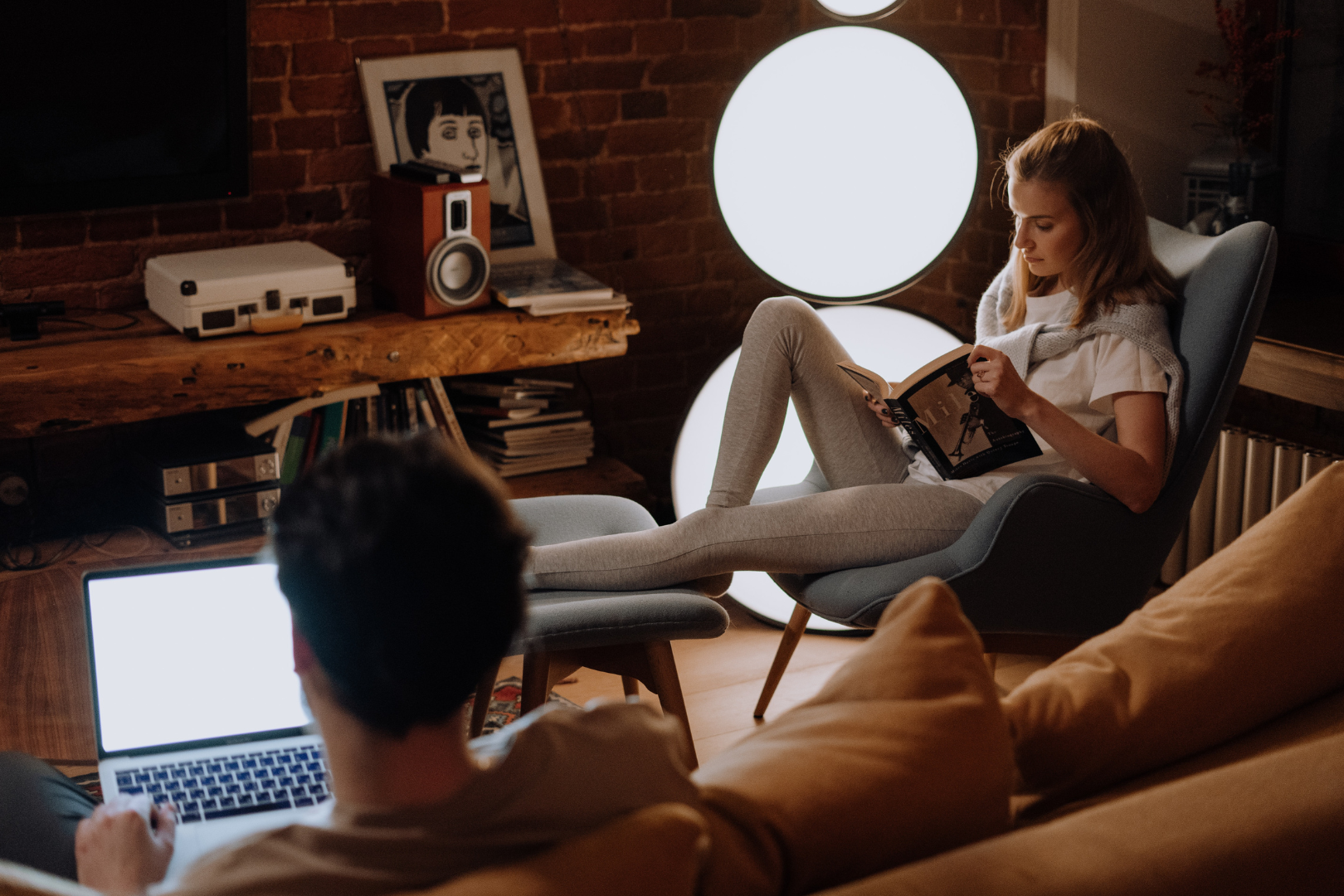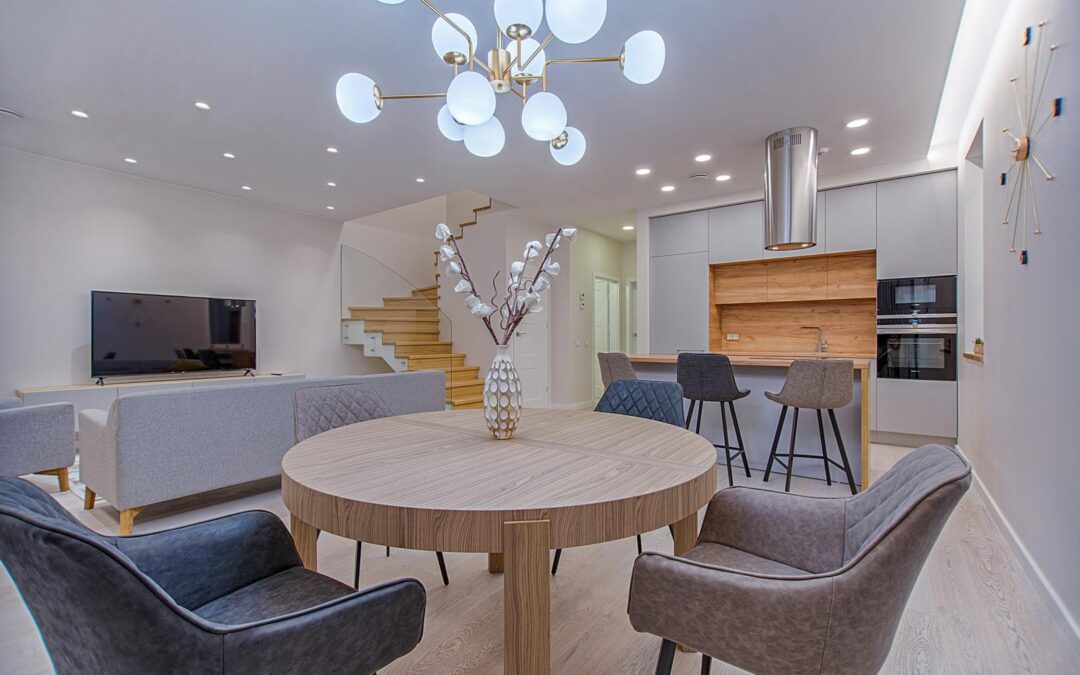Buying a property for the first time is undoubtedly daunting, but knowledge is power, so having an idea of how you can prepare yourself will put you in a better position before taking the plunge.
The second episode of our home moving podcast, OnTheMove, explored the essentials first time movers need to know, from the importance of budgeting to considering what you might be able to compromise on.
To help you with where to start as a first time buyer, we’ve put together a simple round-up of tips to support you when preparing to purchase your first home.
1. Focus on your finances and have a plan for budgeting
Getting your finances in order is potentially one of the most important things you can do when buying a home as for most of us, purchasing a property is one of the biggest financial transactions we’ll ever make.
There are plenty of costs involved in buying a property that you may not be aware of as a first time buyer, so discovering the fees that’ll need to be paid along the way will help you plan for them in advance. Whether it’s legal fees, Stamp Duty, removal costs or filling your first place with furniture, knowing what to expect as far as your payments are concerned will help you save and budget accordingly ahead of embarking on the homebuying process.
Take a look at all the associated costs and get a spreadsheet on the go to work out what it’ll cost you to be able to purchase a property. You can then budget your finances to allow you to sustain a good lifestyle but also save as much as possible to comfortably afford your property.
When organising your finances, remember to put together a realistic timeline. Unless there are circumstances that mean you need to move quickly, buying a home should be a considered decision. Rather than deciding you want to buy a property right now, think about what the purchase would mean for your finances first. Going back to budgeting, how much will you really need to save in order to move? Are there things you might need to sacrifice when it comes to your spending for you to be able to save that amount, and how long might it realistically take to save? Once you’ve asked yourself these questions, you can put together a plan and a goal for your timeline and you may find that rather than moving right now, it might be more realistic to spread your timeline out across the next two or three years.
2. Save as much as you can for a deposit
Your deposit is one of the largest fees associated with buying a property, so it’s helpful to start saving for this as early as possible.
Working backwards might also help when planning your finances. For example, if you know the property price range you can afford, you can then work out whether saving for a 5% or 10% deposit would be most achievable for you and how long it might take you to achieve this figure.
With this in mind, saving up as much as you possibly can on a deposit will work in your favour as the size of your deposit will impact the mortgage rates you’ll have access to, so the bigger deposit you have, the better interest rates will be available to you.
3. Have a good team of experts around you
The moving process isn’t something you’ll go through alone. It takes a team of people who’ll help guide you along the way.
Having a circle of experts around you is incredibly important. Make sure you’ve got a good agent who’ll be able to help you find your perfect home, a good mortgage adviser, and solicitor in your corner.
Before instructing these experts to support you, you might find it useful to do your own research beforehand so you can have more informed conversations. Your mortgage adviser will help you navigate what mortgage products are out there for you and your specific situation, and speaking to a solicitor will help you understand the process before you get to the point of transacting on a property. Perhaps most importantly, don’t be afraid to ask questions, especially to your agent who’ll want you to achieve the best possible outcome for your purchase.
4. Build a good credit score
Credit score is incredibly important. It’s a score given to you by a credit reference agency that determines how reliable and how good of a borrower you are, and how likely you are to repay any lines of credit you’ve taken out on time without missing or making late payments.
There are lots of credit reference agencies available to use and each has different criteria to create the score for you. This means your number might vary from one platform to another.
The key thing to remember is that it’s good to try and keep your credit score in a good place as a better credit score means you’ll have access to better deals on the market. In the case of securing a mortgage, having a better credit score will make it more likely you’ll have access to better interest rates and more deals to choose from.
If you’re a first time buyer, particularly if you’re young and you haven’t had any bills in your name yet like a phone bill for example, you might try and check your credit score and find you don’t have one or that it’s very low. If this is the case, make sure you start to build your credit score before trying to buy a property. If you don’t have any credit rating at all, there’ll be no proof to show mortgage lenders that you can take out a loan and pay it back. While it isn’t good to have no credit rating at all, you also want to avoid being on the other end of the scale where you’re maxing out credit cards and not paying them back on time or missing bills. With this in mind, it’s more about making sure you have a balance.
Once you start to take on some bills yourself, you can start to plan and put together a realistic timeline. Everyone’s timelines are different, but try to allow yourself at least a year to build up some good credit if possible. When you then come to secure your mortgage, banks will look into the detail and check your last three years’ bank statements to see what you’re spending your money on and check how much credit you actually have out at the moment. Therefore, understanding what your credit situation is will leave you in a better place so you can improve it if needs be before securing your loan.
5. Be flexible
When looking for your property, have an open mind.
Find out the average property price for the type of property that you’re looking at to understand what you can afford to give yourself a plan for saving your money as mentioned above. Depending on how much you can save, you may need to be flexible when it comes to location as property prices in the area you’re currently in or the area you were originally interested in may not be suitable for your budget.
Be willing to explore different areas and different types of property. This will open up your range of options beyond your original criteria.
For more on the most important things for first time movers to consider, you can listen to the full second episode of our OnTheMove podcast here, or on your regular podcast streaming service including Spotify and Apple Podcasts.
Content provided by OnTheMarket.com is for information purposes only. Independent and professional advice should be taken before buying, selling, letting or renting property, or buying financial products.






